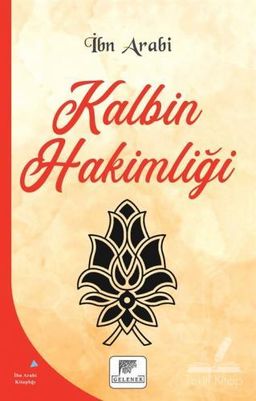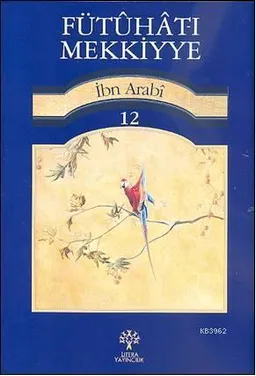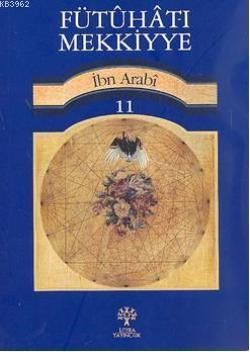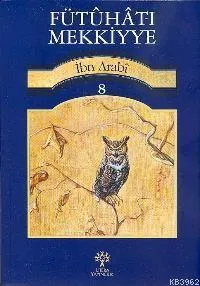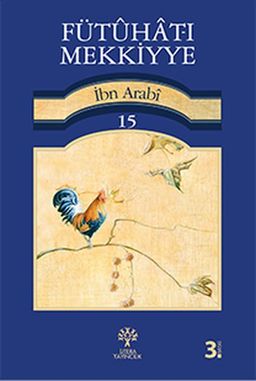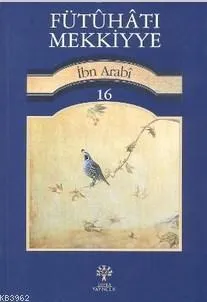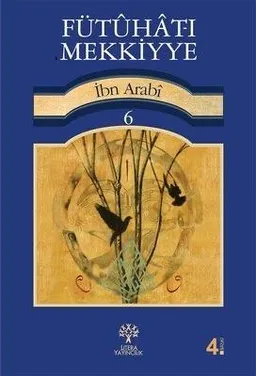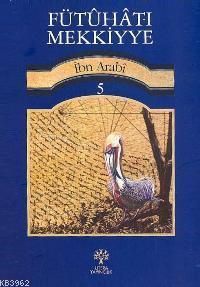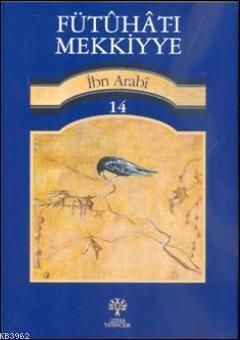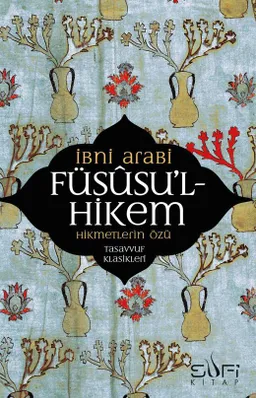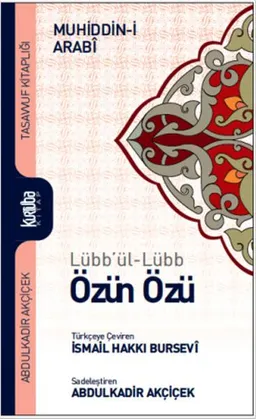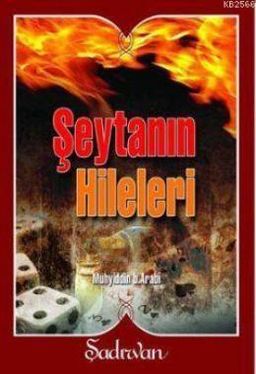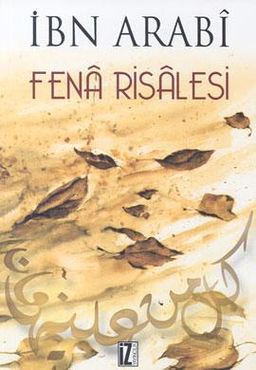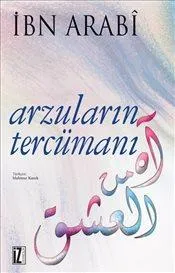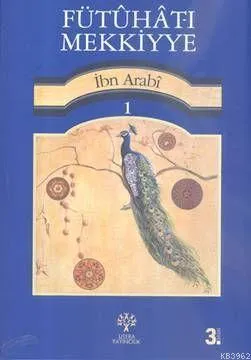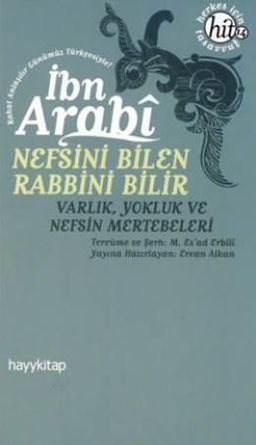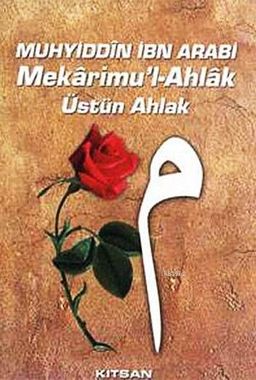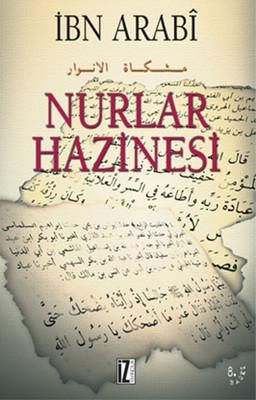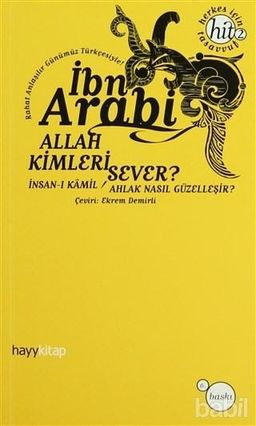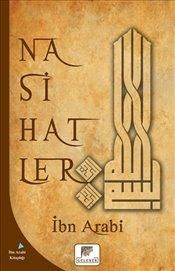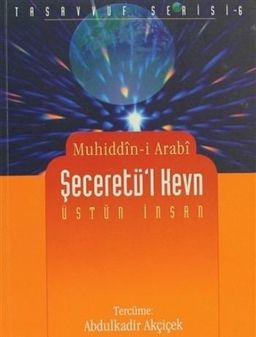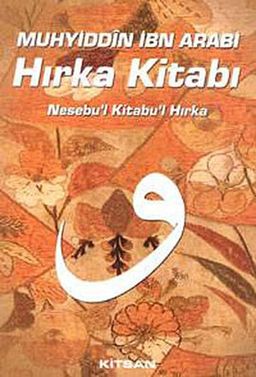Fütuhat-ı Mekkiyye 7
Muhyiddin İbn ArabiAbout Fütuhat-ı Mekkiyye 7
Fütuhat-ı Mekkiyye 7 subject, statistics, prices and more here.About
Büyük sûfi düşünür İbn Arabi´nin şaheseri Fütûhât-ı Mekkiyye, kutsal topraklardan tüm insanlığa açılan bilgi ve hikmet fetihleri, ilk defa tam olarak başka bir dile çevrilerek yayınlanıyor! Doğu ve batı düşüncesinde derin izler bırakmış, mistik gnostik pek çok akımlara kaynaklık etmiş büyük düşünür İbn Arabi´yi ´Şeyhü´l-ekber´ yani en büyük Üstad yapan bu topraklarda bizzat kendisinin el yazısıyla titizlikle korunmuş olan bu dev eser, on sekiz kitaplık bir seri halinde tam olarak Litera Yayıncılık ´literalliği´ ve kalitesiyle yayınlanmaya devam ediyor.
Author: Muhyiddin İbn Arabi
Translator: Ekrem Demirli
Estimated Reading Time: 13 hrs. 21 min.Page Number: 471Publication Date: January 2008Publisher: Litera YayıncılıkISBN: 9789756329429Country: TürkiyeLanguage: TürkçeFormat: Karton kapak
Book Statistics
Reader Profile of the Book
Kadın% 32.0
Erkek% 68.0
0-12 Yaş
13-17 Yaş
18-24 Yaş
25-34 Yaş
35-44 Yaş
45-54 Yaş
55-64 Yaş
65+ Yaş
About the Author
Muhyiddin İbn ArabiYazar · 166 books
This text has been automatically translated from Turkish. Show Original
Muhyiddin Ibn Arabi was born in Mursiye (Murcia), Spain, on 27 Ramadan 560, during the Almohad period. For an unknown reason, he came to İşbiliye (today's Seville) with his family at the age of 8 (probably because his father was a civil servant). His family belonged to the Arab Tayy tribe. Although not much is known about their immediate ancestors, it appears that their parents were influential and respected people. Among his relatives there were people with Sufi knowledge.
He completed his primary education in this city and stayed here for a long time. In his childhood years, he studied with 'Ahmed İbnu'l-Esirî' He befriended a young Sufi named. According to the records about him, İbnu'l-Arabi retired to his private residence for a while during his education, and emerged from his private residence with various information he had acquired through discovery.
After staying in Andalusia for a while, he went on a trip. He went to Damascus, Baghdad and Mecca and met with well-known scholars and sheikhs there. He met with Ibn Rushd in 1182. He describes this meeting in his work. These were the years when Ibn Rushd became famous for saying that knowledge would be obtained through reason. 17-year-old young Muhyiddin believed that true knowledge does not come only from our minds, but that such knowledge can be obtained more through inspiration and discovery.
In these years, 'Shekkaz' He met a sheikh named. This person is a person who started worshiping from an early age, has the fear of God, has never said 'I' even once in his life, and prostrates for a long time. Muhyiddin continued to chat with him until he died. In 1182-1183, 'Lahmî' lived in Haniyye, affiliated with Ishbiliyya. He took Quran lessons from a sheikh named in a mosque named after this person.
'Urayni' in 1184-1185 He met a sheikh named. He mentions him as his first teacher in his works and says that he benefited greatly from him. 'Uraynî' had deep knowledge on the issue of Ubudiyet [servitude]. In these years, 'Martili' He also benefited from a sheikh named. While Urayni told him: 'Look only at Allah', Martilî advised him, 'Look only at your Self, be careful about your self, do not follow it'. He asked Martilî about the insight of these contradictory suggestions. Instead of insisting on the correctness of his own advice, this person said, 'My son, the path shown by Urayni is the right path. You have to comply with it. "We have both shown you the path required by our own situation," he said.
During these years, he served an old woman named Kordovalı Fatma (she was 96 years old when they met) in İşbiliyye for 14 years. This woman stood out among men and women as pious and submissive. She was married to a very good person. It is said that her face was so beautiful that Ibn Arabi was ashamed to look at it.
In 1189, he met a man named Abu Abdullah Muhammad al-Sharafi. He was from eastern Ishbiliyya and was from the people of Hatwa. It is said that this person, who performed his five daily prayers in the Addis Mosque, had swollen feet due to his excessive devotion to prayer.
While Arabi was in Ishbiliyya (1190), he fell ill and lost his ability to read. After staying in this state for two years, he went to the City of Sebte in 589 (Hijri) and met Ibnu Jubayr, who he said had attained moral status. After a while, he returned to İşbiliyye. He came to Tlemsen the same year. Here he will tell about a dream he had about Abu Madyan (d.594)[1].
He went to Morocco in 1196. He gained great fame during his travels there. He went to Andalusia again in 1198. He visited a sheikh named Şekerkaz in the town of Bağa, near Granada City. He says that he is the greatest person he has encountered on the path of Sufism. In 1199-1200, he went to Mecca for Hajj for the first time. There he chatted with a person named [al-Kassar] (Yunus ibnu Abi'l-Husayn al-Hashimi al-Abbasi al-Kassar). After the Hajj, he went to Maghrib and from there to Becaye, the city of Abu Madyan. After a while, he came to Mecca again and wrote "Ruhu'l-Quds", "Tacu'r-Rasul". He wrote his works called.
He was found in Medina, Mosul, and Baghdad in 1204. In Mosul, "et-Tenezzülatu'l-Musuliyye" He wrote: After leaving Mosul, he came to Konya. He married the widowed mother of Sadreddin Konevi, whom he met there. "Risaletü'l-Envar" while in Konya he wrote. He was respected and honored by Selçuk Meliki. Then he went to Egypt. When he was faced with the death penalty given by the Egyptian scholars for his words in Futuhat-ı Mekkiye, he secretly escaped from there. He came to Mecca again and stayed here for a while. After wandering around Baghdad and Aleppo for a while, he came to Konya again in 612/1215. He settled in Damascus in 617. He traveled to the surrounding cities from time to time. In Damascus, he wrote Fusus, which is considered his greatest work after the Conquest (627/1230). Ibn Arabi states that he received this work in his dream from the Prophet to pass it on to his nation. He died in Damascus on 22 R.Awwal (1239) in 638. His grave is at the foot of Mount Qasiyun, outside the city of Damascus. In 1516, when Selim I made Damascus Ottoman territory, he built a tomb, a mosque and a soup kitchen there. "All centuries are known for the great people they raised, the centuries after me will be remembered with me" on the dome of the tomb where he is buried - allegedly belonging to Ibn Arabi. A couplet with the meaning is written.
Books
Füsusu'l Hikem
9/10
Özün Özü
8.8/10
Şeytanın Hileleri
9.5/10
İlahi Aşk
8.9/10
Fena Risalesi
8.5/10
Arzuların Tercümanı
8.2/10
Fütuhat-ı Mekkiye 1
9.3/10
Nefsini Bilen Rabbini Bilir
8.6/10
Mekarimu'l-Ahlak
8.7/10
Nurlar Hazinesi
9.4/10
Allah Kimleri Sever
8.7/10
Nasihatler
9.4/10
Şeceretü'l Kevn
9.4/10
Nefsin Terbiyesi
7.9/10
Hırka Kitabı
9/10
